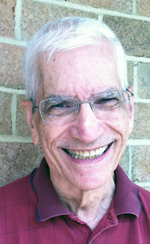
NEW YORK — Today’s observance of Veterans Day takes me back to a Memorial Day parade years ago, when it was the custom on Staten Island, NY, to rotate the leadership of the march annually among the various local veterans organizations.
Early that May, I got a phone call from a member of the Jewish War Veterans (a man I didn’t know) who said the JWV was leading that year’s march, and they were calling every Jewish veteran, member or not (I wasn’t) to join the parade “so that no one could say that Jews hadn’t served in the military.”
I’ve always enjoyed parades as a spectator, not a marcher, and although I’d been in the U.S. Army during the Korean conflict, I hadn’t served in combat, and not even overseas, so the prospect of marching with “real veterans” seemed awkward.
But not giving anyone reason to say that Jews hadn’t served was a compelling argument.
Of course, many Jewish men and women from my hometown had served, and I’d known quite a few of them, beginning with an uncle, who, as a U.S. sailor in World War I, had survived the torpedoing of the U.S.S. Lincoln. During World War II — except for a young man who got a job in a shipyard and boasted, “I’ll build ’em, you’ll sail ’em” — I knew many Jewish Staten Islanders who served and, in several cases, gave their lives. In fact, two male relatives, both of whom had served in combat zones during World War II, later married widows of men killed in combat in that conflict.
So I marched. The turnout of Jewish veterans was substantial, given the borough’s relative low total Jewish population, and the event was fine.
But thinking about the motivation, I realized it was part of a larger syndrome, a sort of Jewish political correctness. Sometimes we Jews do or do not do things, because of what non-Jews may think about us.
For instance, we may avoid bargaining over an item or service, though others do so enthusiastically, because it may contribute to the “Jew ’em down” mantra.
And some Jewish soldiers would skip Friday night religious services, to participate in the so-called GI Party (barracks-scrubbing), to avoid the rancor of fellow soldiers for using a religious “dodge” to avoid an unpleasant task.
To avoid offending those for whom that day was the sabbath, my late mother-in-law would not hang items on the outdoor clothes line on Sunday.
Among my own mishegas. I consciously or subconsciously would leave an extra- large tip when paying a bill with a credit card bearing my obviously Jewish name.
And I don’t wear a yarmulka in the street, not only because wearing a kipa would make me appear more frum than I actually am, but also because if I do something stupid — such as walk in the path of a moving vehicle — I want the driver’s epithet to be directed only at me personally rather than including my ethnic group (as in “you Jewish so-and-so”)
All, or certainly most, of us do tend to cringe when a bad guy turns out to be Jewish, and kvell when somebody Jewish does something great
We’re not alone in cheering a fellow tribesman. My wife and I once went to a local opera production with an Italian friend, an opera maven. He said he was familiar with the tenor, who he predicted would start out weak and get weaker with each passing aria. Even to my untrained ear, the singer lived up, or down, to the prediction. But when he appeared for a curtain call, our friend clapped and cheered exuberantly. Why, in view of the weak performance, was he exhibiting so much enthusiasm?” Our friend’s answer was simple: “He’s Italian.”
As Jews, we can certainly relate. Our judgments often rise or fall, are harsher or less severe, depending on with whether or not the person involved is Jewish. And much of our action or lack of it is predicated on how non-Jews are likely to view our actions.
But wouldn’t it be wonderful, not to be guided solely by what “they” might think, but by our own best judgment as to what is right? And not get overly exercised about, or self-identified with a Jewish good guy or bad guy in the news?
When that far-off day arrives, we’ll have truly arrived. But I’m not holding my breath.
*
Cohen is a freelance writer based in New York City. He may be contacted via joel.cohen@sdjewishworld.com